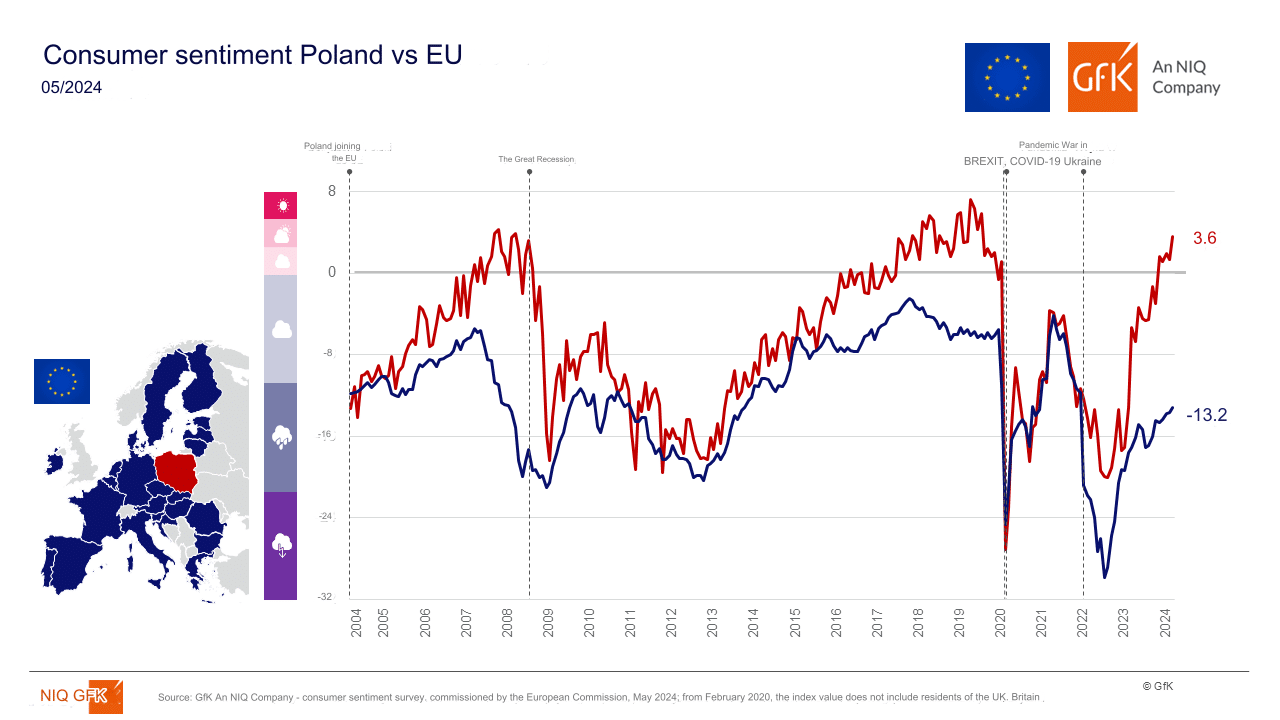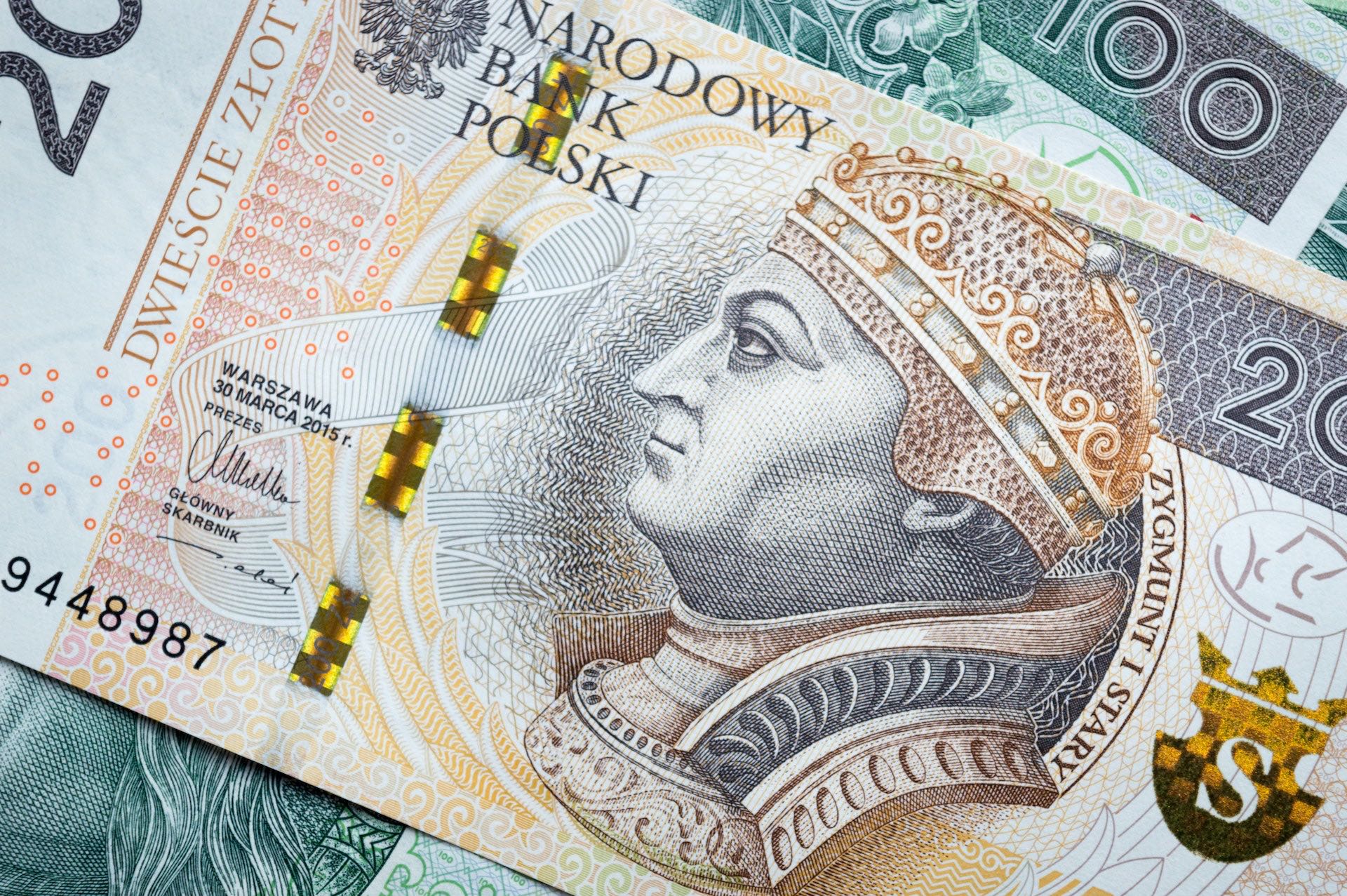Polish consumers are feeling increasingly positive about their financial situation and the future of both their personal and the national budget. Most other indicators of the Consumer Confidence Barometer are also on the rise, with the greatest contribution coming from the youth. These findings come from the latest research by GfK – An NIQ Company.
The GfK Consumer Confidence Barometer – An NIQ Company, a synthetic indicator illustrating the current sentiments of Poles regarding consumer attitudes, reached 3.6 points in May 2024. This represents a significant increase of 2.3 points compared to April, marking the best result of the Barometer this year and in many years. The last time the indicator was higher was in September 2019.
Consumers in most EU countries remain in much worse spirits. For them, the average was -13.2, only half a point better than the previous month.
According to GfK – An NIQ Company data, most of the key barometer indicators improved in May, both in terms of assessing the country’s economic situation and personal finances. Our propensity to spend on durable goods remains similar to the previous month (12.8 points). More significant changes can still be observed in the long-term perspective. A year ago, the components of the barometer were even several dozen points worse. For example, we assessed the future economic situation of the country at -24.5, and now it is -5.7. However, changes over the past five months have been minimal.
In May, as in the previous month, men were in clearly better consumer spirits. There are still significant differences in terms of age, reaching over 40 points. The youngest group (ages 15 to 29) remains in the best consumer mood, with an indicator of even 29.3 points. In comparison, respondents aged 50-59 and over 60 recorded average sentiment levels of -11.4 and -6.6 points, respectively.
“In recent months, the two-speed Barometer has become even more pronounced, with this year’s positive result driven by the youth. Without young consumers, we would still be in negative territory. What causes such significant differences? Primarily the scope and scale of expenditures. People aged 15-22 are mostly consumers who do not yet fully manage their own budgets. As we age, the range of costs, responsibilities, and awareness increases, and our consumer optimism fades. Nonetheless, the youth remain an important group of buyers who significantly influence the purchasing decisions of their parents, grandparents, and older friends. Retailers see that they currently view the market through rose-colored glasses and certainly do not ignore this,” says Michał Pawelczyk, Project Manager at GfK – An NIQ Company.
Survey Information
The survey was conducted from May 10-15, 2024, as part of the multi-topic e-Bus omnibus survey using CAWI (computer-assisted web interviews) on a quota-based, representative nationwide sample of n=1000 individuals. The respondent structure was selected to reflect the distribution of selected socio-demographic parameters in the general population.
The Barometer can range from -100 to +100 and represents the balance between positive and negative opinions. A positive value of the Barometer indicates that the number of optimistic consumers exceeds the number of pessimistic ones in a given survey wave. A negative value indicates the opposite proportion.
The Barometer is an aggregated indicator commissioned by the European Commission and has been calculated since 1985. Currently, the index covers 27 countries. Data for Poland comes from the GfK survey co-financed by the European Commission.
